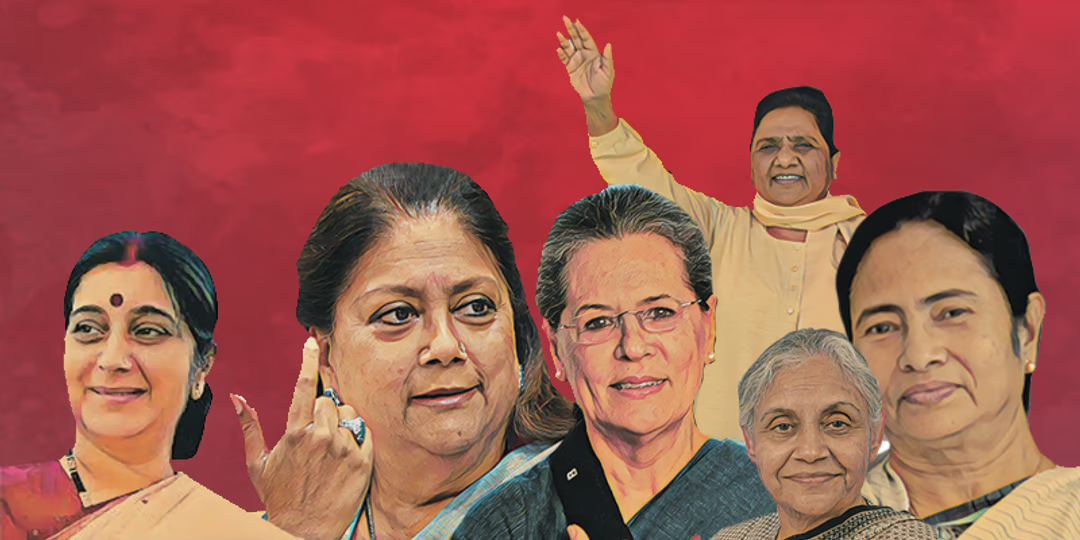Meet the 6 Women Politicians Who Influenced the Course of Indian Politics
Politics Politics of IndiaPosted by NewAdmin on 2025-01-30 09:02:23 |
Share: Facebook | Twitter | Whatsapp | Linkedin Visits: 28

India’s political landscape has been shaped by the remarkable contributions of women who have carved a path for themselves in a traditionally male-dominated sphere. From rising to powerful leadership roles to spearheading social reforms, these women have profoundly influenced the political scene. Here are six such politicians who have played pivotal roles in the evolution of Indian politics:
1. Indira Gandhi: The Iron Lady of India
Indira Gandhi, India’s first female Prime Minister, is undoubtedly one of the most influential women in the country’s political history. Serving as the Prime Minister for a record 15 years, her tenure was marked by strong, often controversial decisions that altered the course of the nation.
Her decisive leadership during the Indo-Pak war of 1971, leading to the creation of Bangladesh, remains one of her most significant achievements. Her policies, including nationalizing major banks and the Green Revolution, helped transform India into a self-sufficient nation. Despite criticism for imposing the Emergency in 1975, Indira’s political legacy remains indomitable.
2. Sonia Gandhi: The Silent Power Behind the Congress Party
Sonia Gandhi, the former President of the Indian National Congress (INC), may not have been born in India, but she has played a crucial role in shaping the party’s destiny. After the assassination of her husband, Rajiv Gandhi, Sonia entered politics and became a prominent face of the Congress party.
Under her leadership, the Congress Party made a strong comeback, and she led the United Progressive Alliance (UPA) to victory in the 2004 general elections. Her quiet yet firm leadership style earned her respect, and she is credited with holding the Congress together during turbulent times. Despite personal tragedies, Sonia Gandhi has remained a key figure in Indian politics.
3. Mamata Banerjee: The Firebrand Leader of West Bengal
Mamata Banerjee, popularly known as "Didi," has significantly impacted West Bengal’s politics. A former Congress leader, she founded the All India Trinamool Congress (TMC) in 1998 and has since become a powerful voice in the state.
Her election as the Chief Minister of West Bengal in 2011 marked the end of the 34-year-long rule of the Communist Party of India (Marxist). Mamata’s tenure has seen the rise of several welfare programs and initiatives for women, such as the Kanyashree project. Despite facing criticism for several of her controversial decisions, Mamata Banerjee’s political journey remains a testimony to her resilience and determination.
4. Jayalalithaa: The Unyielding Leader of Tamil Nadu
Jayalalithaa, often called "Amma," was one of the most powerful and charismatic women in Indian politics. Rising from a successful film career, Jayalalithaa became the Chief Minister of Tamil Nadu multiple times.
Her tenure as Chief Minister saw the implementation of several welfare schemes, particularly for women and children, including free education for girls and free bicycles for school-going girls. Despite numerous allegations of corruption, Jayalalithaa's immense popularity and lasting impact on Tamil Nadu politics cannot be denied.
5. Mayawati: The Dalit Icon and Political Strategist
Mayawati, the former Chief Minister of Uttar Pradesh and leader of the Bahujan Samaj Party (BSP), has been a trailblazer for Dalit rights and empowerment. Coming from a humble background, Mayawati rose to become one of the most influential women politicians in India.
Her political rise was fueled by her advocacy for the upliftment of Dalits, backward classes, and minorities. As Chief Minister, she implemented policies focused on social justice, including reservation for Dalits in government jobs and educational institutions. Mayawati’s political strategy and her role in shaping UP politics continue to make her a significant figure in Indian politics.
6. Pratibha Patil: The First Woman President of India
Pratibha Patil broke the gender barrier in Indian politics when she became the 12th President of India in 2007. As the first woman to hold the office, her election was a milestone in India’s democratic journey.
Before her presidency, Patil held various important political positions, including the Governor of Rajasthan. During her tenure as President, she worked towards promoting women’s empowerment, rural development, and education. Patil’s term as President marked a significant achievement in Indian politics, inspiring future generations of women leaders.
These women have not only navigated the complexities of Indian politics but have also redefined the roles of women in the political sphere. Their leadership, vision, and courage have set a benchmark for future generations of women politicians in India. From guiding their respective parties to achieving social and economic reforms, these women have left an indelible mark on Indian politics.
Search
Categories
Recent News
- Bengaluru Metro's Pink Line Expansion: A Breath of Fresh Air for Commuters
- Ghana's Youth Drug Crisis: A National Tragedy
- India's Services Sector Soars: A Boost for the Economy
- Gold Bond Investors Face New Tax Reality
- Bengaluru Colleges Face Uncertain Future: The Looming Fee Hike Crisis
- Anna University Convocation: Minister's Absence Sparks Speculation
- GATE 2026: Countdown to the Crucial Exam
- Sisters' Tragic Fall: A Shocking Wake-Up Call for Ghaziabad